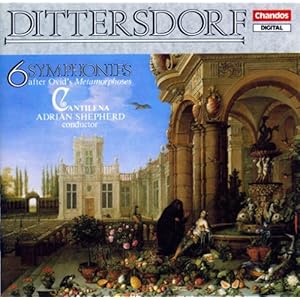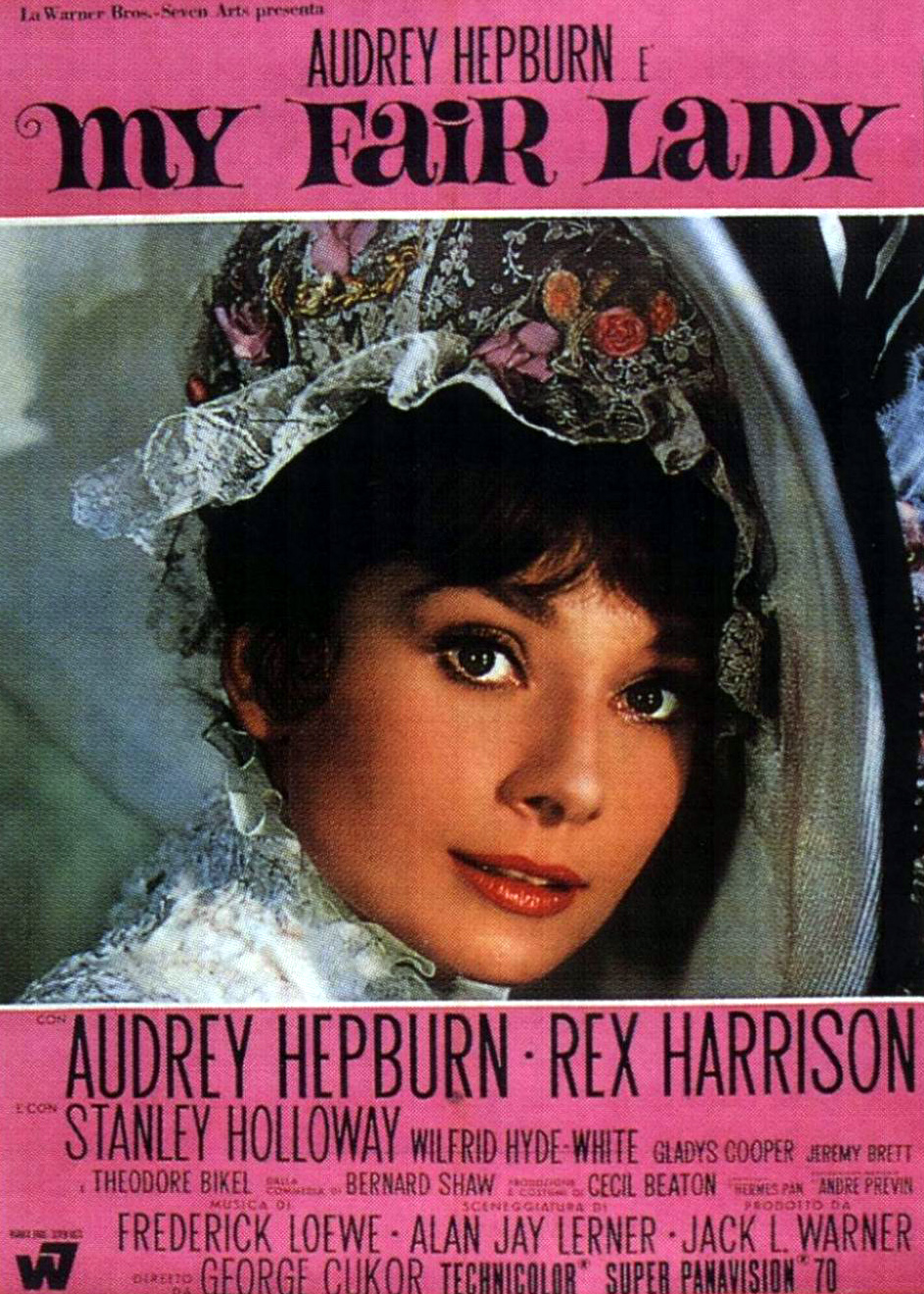Share This:
October 25, 2012 | Theatre,
Check out these Films, Books & Music related to TALES FROM OVID
FILMS
My Fair Lady (1964)
This classic musical has its roots in one of Ovid’s best known tales from the Metamorphoses: that of Pygmalion. In the tale, an artist falls in love with the statue he is carving and it comes to life. George Bernard Shaw famously turned this into a stage version (musically adapted here) in which a professor takes in an unpolished girl and trains her in order to make her presentable to society. Winner of eight Academy Awards, including Best Picture.
Hercules (1997)
(1997)
Although it may not be the most accurate representation of the tales of Hercules, it certainly is one of the more entertaining. Disney’s animated film loosely bases its storyline off the Greek version of the myths which were borrowed by Ovid and tweaked for inclusion in the Latin Metamorphoses. This family friendly crowd pleaser tells the story of a young boy born to the god Zeus who is kidnapped by the minions of the evil god Hades and then lives on earth, only to figure out he is of divine descent.
Orphée (1950)
Acclaimed French director Jean Cocteau translates Ovid’s myth of Orpheus and Eurydice to the screen in an early, visually intriguing adaptation set in the 1940s. Orpheus is a poet shunned by the Left Bank artists. He becomes torn between two loves: his wife, Eurydice, and a mysterious princess. When Eurydice dies, Orpheus follows the princess into the dark underworld to search for her and hopes to bring her back to the land of the living.
BOOKS
 Metamorphoses by Ovid, in a new translation by Charles Martin (2005)
Metamorphoses by Ovid, in a new translation by Charles Martin (2005)
Revisit the original tales in this fresh, crisp translation by Pulitzer Prize nominee Charles Martin. Encompassing the stories from all twelve books, Martin retains the lyrical poetry of the ancient text and keeps the imaginative language alive. This foundational work of literature has held heavy influence on poets through the ages including Dante, Shakespeare, and Ted Hughes.
 Shapeshifters: Tales from Ovid’s Metamorphoses by Adrian Mitchell, illustrations by Alan Lee (2008)
Shapeshifters: Tales from Ovid’s Metamorphoses by Adrian Mitchell, illustrations by Alan Lee (2008)
One of the last projects for legendary British poet Adrian Mitchell, this beautifully illustrated, young adult friendly selection of Ovid’s poetry is sure to please audiences of all ages. Each tale is accompanied by vivid, imaginative imagery by Alan Lee—the mastermind behind the stunning visuals from The Lord of the Rings film trilogy—and re-told in pared-down modern language while keeping the essential beauty from the inspiration.
 Ovid Metamorphosed edited by Phillip Terry (2001)
Ovid Metamorphosed edited by Phillip Terry (2001)
British author Phillip Terry contacted some of the elite writers of modern times, prompting them to write short stories inspired by Ovid’s classic tales. They took to writing, and this is the result: a multi-faceted, memorable collection of prose stories from the likes of Margaret Atwood, A.S. Byatt, and Joyce Carol Oates, just to mention a few.
MUSIC
 Six Symphonies After Ovid’s Metamorphoses by Karl Ditters von Dittersdorf (1771)
Six Symphonies After Ovid’s Metamorphoses by Karl Ditters von Dittersdorf (1771)
18th Century Austrian composer Karl Ditters von Dittersdorf was inspired by Ovid’s text to create six symphonies, each based on separate myths from the original poems. Included here are aural accompaniments for “The Fall of Man,” “The Transformation of Acteon into a Stag,” and “The Rescuing of Andromeda by Perseus,” among others.
 Six Metamorphoses (After Ovid): Temporal Variations for Oboe and Piano by Benjamin Britten (1951)
Six Metamorphoses (After Ovid): Temporal Variations for Oboe and Piano by Benjamin Britten (1951)
Landmark English composer Benjamin Britten was inspired by Ovid’s work to compose these six variations, featuring characters like Niobe, Bacchus, and Narcissus. His simple, sublime translation of the tales into audible medium provokes all the sadness of mystery of Ovid’s original work, while being a distinguished work by Britten.
 Mythologies by Patricia Barber (2006)
Mythologies by Patricia Barber (2006)
Jazz artist Patricia Barber takes a stab at interpreting the Ovid tales through music with her album “Mythologies.” With soft, half-whispered vocals and traditional jazzy underscoring, Barber translates the original poetry into a modern lyricism apt for the form, and opens a new way of feeling out the tales from long ago.





Leave a Reply